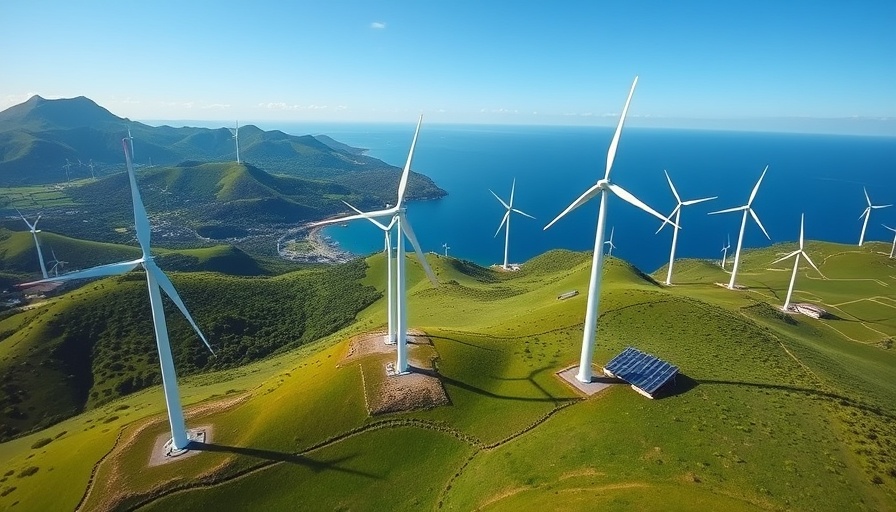
Why Clean Energy Is Crucial for Asia's Future
As the global economy grapples with the repercussions of escalating trade tensions and heightened tariffs, Asia finds itself at a crossroads. The recent push from the United States for Asian countries to purchase liquefied natural gas (LNG) may promise short-term relief, but energy experts warn that this dependency on fossil fuels undermines long-term stability. Instead, Asia should harness its vast renewable energy resources to secure its energy future.
Unmatched Renewable Potential
According to a 2023 report from Ember, Southeast Asia is sitting on a goldmine of untapped renewable energy potential, with an estimated 30,523 GW of solar power and 1,383 GW of wind power capacity waiting to be realized. This not only highlights the region's possibilities but also points to the stark contrast between current capabilities and future potential. For instance, Indonesia has renewable capacity that is 80 times greater than its energy demand. By investing in solar and wind infrastructure, Asia can move toward energy independence and sustainability.
The Argument Against LNG Dependency
Many experts, including Laurie van der Burg from Oil Change International, indicate that increased import dependency on LNG can lead to increased instability and economic risks. Blackouts in Malaysia from LNG plant failures and rising debt in countries like Pakistan underscore the drawbacks of relying on imported fossil fuels. Van der Burg asserts that instead of succumbing to external pressures, Asian countries must prioritize energy efficiency and renewable resources to assure a stable energy future.
The Path to Economic Resilience
Moving toward renewable energy does more than just address energy independence; it positions Asian countries competitively on a global scale. Christina Ng from Energy Shift Institute emphasizes that Southeast Asian nations need to double down on domestic clean-tech initiatives. By innovating and developing local clean energy technologies, these countries can transition from being a low-cost assembly market to leaders in sustainable energy.
Embracing Sustainability Practices for Greater Impact
For many readers passionate about eco-friendly living, knowing that renewable energy can mitigate climate change is vital. Transitioning to green energy not only lessens the carbon footprint but also aligns with sustainable living practices that include responsible consumption and ethical sourcing. By prioritizing clean energy solutions, countries can protect biodiversity and ensure water conservation in their shift toward a greener future.
Unlocking the Economic Advantages of Renewables
Generating clean energy from local sources presents an opportunity for economic growth. Different sectors can benefit from investments in green technologies and renewable energy advancements. Businesses will be able to capitalize on the growing trend in green consumerism as more people seek sustainable products, from solar power solutions to ethical fashion. Investing in energy efficiency not only protects the environment but offers a pathway to innovation and job creation.
Concluding Thoughts on Asia’s Energy Resilience
With the challenges posed by international trade policies and fossil fuel dependency, Asia stands to gain immensely by pivoting toward renewable energy. Not only is it a more sustainable choice, but it also represents a strategic move for economic independence. As consumers, communities, and countries embrace green technologies and sustainability initiatives, they take significant strides towards a brighter, more resilient future.
It's time for the Asian region to seize this moment and invest in renewable energy and sustainable practices. By doing so, they can significantly reduce their environmental impact while enhancing energy security. Together, we can build a greener planet and a more robust economy.
 Add Row
Add Row  Add
Add 



Write A Comment